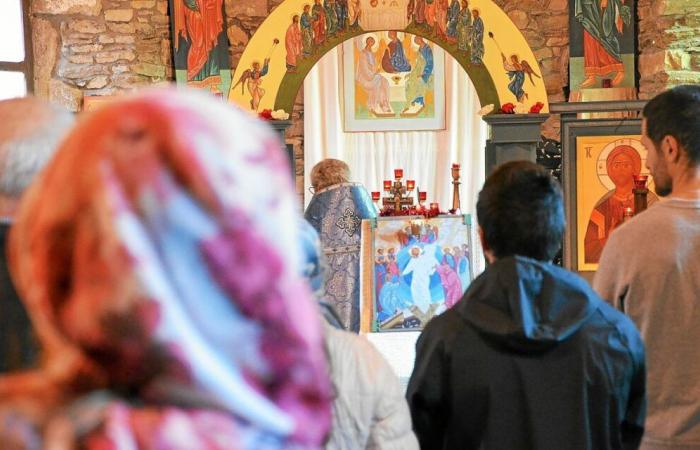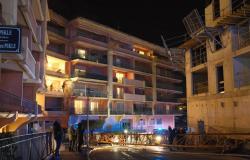Twice a month, the chapel of the Holy Spirit of the Sepulcher, in Plérin, puts on its garments of light and is adorned with icons to welcome the Orthodox community from the countries of Saint-Brieuc and Dinan. Gathered for Sunday worship this Sunday, December 8, around fifty faithful. Among them, almost as many children as adults and a multitude of nationalities. “Our parish is rather dynamic with the arrival of people from Eastern countries, especially Georgia, Romania and Ukraine,” underlines Father Alain Monnier, who officiates in the absence of the parish rector, Father Jean-Michel Sonnier, currently convalescing.
“The most important thing is what comes from the heart”
This small cosmopolitan community will be one of the few to celebrate the birth of Jesus of Nazareth according to the Julian calendar, which is thirteen days apart from the Gregorian calendar. On January 7, the Orthodox will celebrate “the incarnation of the Son of God”, the second most important religious holiday for the Orthodox after Easter.
In the chapel, French people, but also Georgians, Romanians and Ukrainians rub shoulders and talk, sometimes not without difficulty. So many countries where Orthodox traditions differ. For example, while Orthodox French women generally abandon the Christian veil, it is worn by a majority of Eastern European believers. “There are cultural practices that differ, but they don’t say much about faith, ultimately. The most important thing is what comes from the heart,” insists Father Monnier.
“War is not a good thing”
The war in Ukraine has not always facilitated dialogue within the community as well. The French Church is under the tutelage of Cyril of Moscow, who presents Russia's invasion of Ukraine as a holy war to be waged against a “degenerate” West. A conflict which tore the Orthodox Church apart, to the point that Ukraine adopted the Gregorian calendar to break away. However, Father Monnier claims a certain autonomy vis-à-vis his supervisory authority: “We depend on the Patriarch of Moscow but we have a certain freedom to say that war is not a good thing. »
Rather than the current patriarch, Father Alain Monnier refers instead to Tikhon of Moscow, the last patriarch of the Russian Church who was detained until his death for opposing the Soviets.
Christmases around a kutya
Christmas will therefore be an opportunity to “move away from geopolitical questions” which can agitate the religious community in order to “refocus on the essential”, underlines Father Alain Monnier.
As a symbol, Katerina, a faithful arrival from Ukraine in 2023, will celebrate the birth of Christ on December 25, as well as January 7. “A French family invited me and my partner,” she rejoices. For both occasions, she will make kutya, a traditional Ukrainian Christmas dish made from boiled wheat grains, honey and poppy seeds: “I couldn't find the ingredients last year but I should get there this time. times ! “.
For the “second” Christmas, that of January 7, his companion Mickael, a Ukrainian priest, will open the service with prayers in French, rather than in Slavonic, the liturgical language. “In this way, it shows the desire for spiritual union beyond cultural differences,” appreciates Father Monnier.






